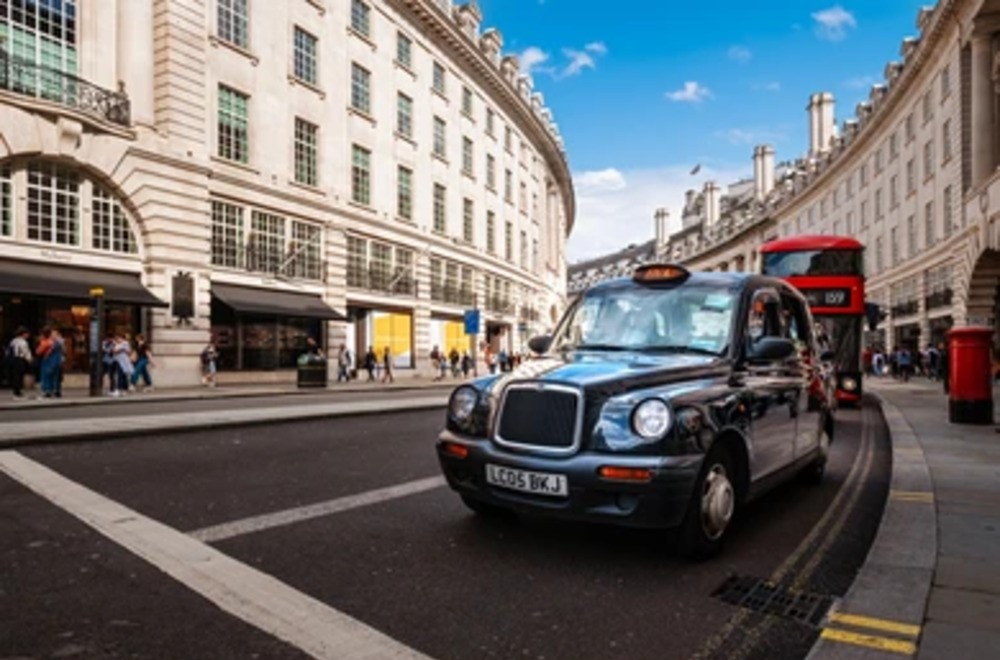Geely, a Chinese automaker, is to make a significant investment to transform the company that makes London’s famous black taxi vehicles. The plan is remaking it into a high-volume, all-electric brand with a variety of commercial and passenger cars, executives at the division told the media.
The London Electric Vehicle Company (LEVC) also wants to broaden the scope of the services it offers, such as having the vehicles handle their own upkeep and identifying the interests of their owners so that they can plan activities.
They need significant investments in a hybrid black taxi
A well-developed product portfolio is required. At the LEVC headquarters in Coventry, central England, LEVC Chief Executive Alex Nan stated that they needed significant investments to improve the infrastructure and technology. Geely will continue to invest in LEVC because it is such a special project.
With a starting price of about 66,000 pounds ($81,500), LEVC manufactures a hybrid taxi model with a battery that has a range of 64 miles (103 km). Also, it has a gasoline support that gives it a total range of more than 300 miles. The epidemic had a significant negative impact on the business, and in October, 140 employees were let go.
Companies involved will cooperate with other interested parties
Nan stated that LEVC and Geely will look to cooperate with other automakers to create new technology and would try to entice other investors to its portfolio of zero-emission vehicles.
The extent of Geely’s investment making public will come later, according to executives. The Chinese business, which acquired complete control of LEVC in 2013, has so far contributed 500 million pounds to the company.
In a statement, Geely stated that it fully supports the new transition plan presented by the executive team and board of LEVC.
EV Black taxi is just one of many expanding Geely’s projects
In order to significantly increase the production of its sports vehicles and produce high-end SUVs and sedans in China and Britain, Geely launched a 2 billion pound investment in another business, specialized British luxury sports manufacturer Lotus. According to executives, Geely is planning to expand LEVC in a similar manner.
The firm Britishvolt, which had intended to construct a sizable battery facility in northeast England, filed for administration last week, dealing a blow to Britain’s EV ambitions.
According to Chris Allen, managing director of LEVC, we must ensure that the UK environment as a whole is competitive and has a place on the global stage.
Volvo and Polestar are two of the many brands Geely owns. Geely also has a joint venture agreement with Volvo. Another company in the group, Zeekr, submitted an application for a U.S. initial public offering last month.
But, the EV black taxi is an immense complexity for Geely
Geely must deal with complexities that bigger EV manufacturers BYD and Tesla have managed to avoid.
According to Allen, LEVC was looking into a variety of passenger and commercial vehicle models on an electric base. It can rely on other group brands that produce EVs already to advance quickly and nimbly.
According to Allen, the business already employs a Volvo steering wheel, infotainment software, and an infotainment system, which helps it save money.
He added that LEVC could easily have a full range of EVs on the road within five years, adding that there is nothing they couldn’t offer in a very short time period if they wanted to.
But in two years, the question is if the industry will be prepared, will the infrastructure for charging be in place, and will there be enough consumer confidence?
As things are right now…
At its Coventry factory, LEVC is currently able to produce 3,000 taxis annually while working a single shift. According to Allen, the factory has growing space, and that number is raisable to 20,000 with ease. Like Lotus, it might also rely on Chinese manufacturing, according to Allen. On average, a large auto plant turns out about 300,000 vehicles annually.
Allen asserted that up to now there was never truly a realization about how significant is the amount of value in their product is. The goal here is to make LEVC a lot more recognizable brand on a global level and to diversify its product line into as many markets as it can.

